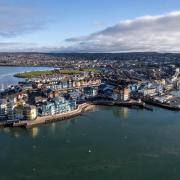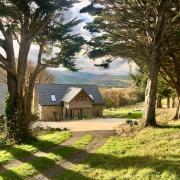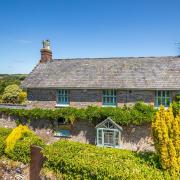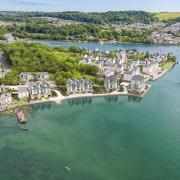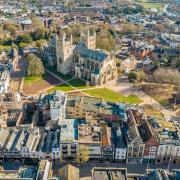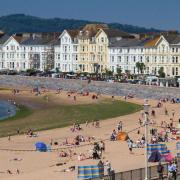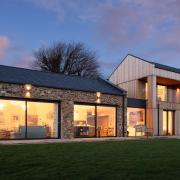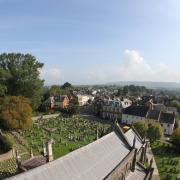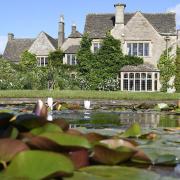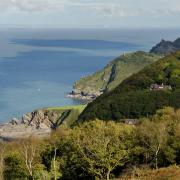Our wildlife writer James Chubb just loves exploring rock pools
It is a well known fact that Devon is the only county in the UK with two geographically separate coastlines. Its also fully appreciated that these two coastal corridors are enormous magnets for people in the summer months, tourists and locals alike. And I am no exception.
Sure, a bracing dip in a challengingly cold Dartmoor river is an effective way to sharpen yourself up on a meltingly hot day but, when the mercury rises, its the sea that so many of us head for.
Here in Devon we are blessed with a beach for every whim and weather, from the steeply shelving pebble beaches of the Jurassic Coast in East Devon, to the seemingly limitless sandflats of Saunton.
Being a nature nerd, my two favourite things to do on the coast are to leisurely scan the horizon with my binoculars, looking for birds; or go rockpooling. As I am a father of two young girls with seemingly limitless energy it is the latter I find myself doing more often than not. But you won’t hear me complaining - oh no - time amongst rockpools transports me back to when I was 12 years old. I’m the Peter Pan of the pools. Here are some of my favourites.
Starting in the wild and wooly north of the county, Combe Martin beach is a good entry beach for the novice ‘pooler. Golden sand is flanked by fringes of good rockpools. Less enthusiastic crabbers can sit themselves on a towel in the sun and let the rest of the family crack on with scooping, netting and ferreting around the rocks. For families who have totally caught the rockpooling bug, the nearby Lee Bay has an even broader expanse of pools, but less sand.
While we’re on the beach, its a good time to reflect on the rockpooling code: Always replace rocks and stones in the position you found them, ditto with the cascading tresses of seaweeds, wracks and algae. Never lift or roll rocks which are too heavy - you could hurt yourself, or worse, the fragile life hiding beneath. Finally, if you collect animals in a tray or bucket for closer inspection please always put them back in the same pool you found them in. While crabs are fickle things, some species such as the common blenny will have a very well defined home area and it is only right to put them back in the same spot. Blennies, also known as shannies, are amazing fish. They can be found in pools from the high water mark all the way down to the lower shore and, on the upper reaches of the beach, will have a crevice or cleft into which they shelter when the tide retreats. As long as their skin remains moist, they will be perfectly happy entirely out of the water for several hours waiting for the sea to return.
Crossing the county now to the far south west, Wembury beach is a must for any rockpooler. Not only are the pools tremendous, but there is a brilliant seashore centre right there on the beach, run by Devon Wildlife Trust. Get here on a really low tide and explore the lowest pools for the neon iridescence of a blue-rayed limpet or the mesmerising encrusting colonies of star ascidians. But take care while you are down there, as the lower shore is also home to the fabulously sharp claws of velvet swimmer crabs lurking beneath the turquoise and purple tentacles of a snakelocks anemone. No summer is complete without a visit to Wembury.
My favourite snorkelling beach is a few miles away from here at South Milton Sands where the rocky reefs and offshore stacks are amazing to potter around on a calm day. Vivid wrasse dash amongst the Rastafarian locks of kelp, chased by predatory bass. While out floating above the sun-dappled sand, you can watch spider crabs pick their way clumsily and disturb the occasional flatfish out of its hiding place in full sight - no sooner have they settled again, they disappear. Snorkelling the way I tend to do it is really only rockpooling at high tide. Rather than cover distance, I would far rather spend time holding onto a rock, watching the huffings and puffings of a group of transparent sea squirts or the combed sifting appendage of a barnacle feeding.
Devon has an amazing diversity of beaches, get out there and explore some new spots!




